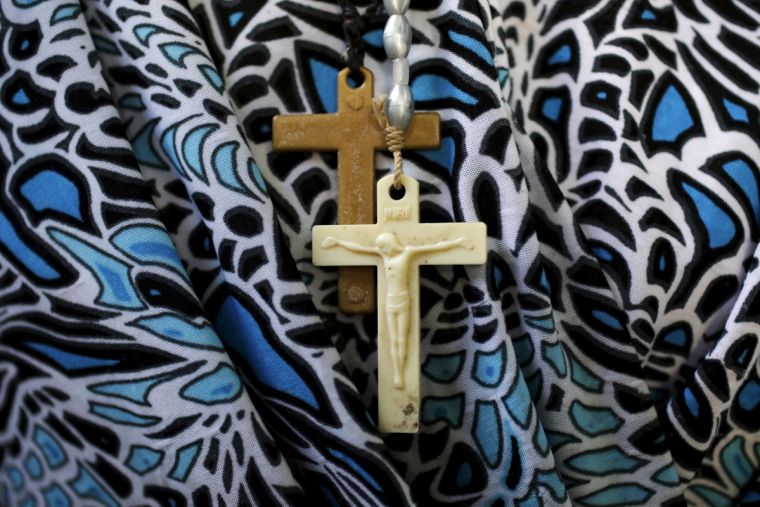Why The EU's Hijab Ruling Is So Worrying For Christians
Today's court ruling banning hijabs in the workplacs highlights a contemptuous tendency among 'religious liberty' defendants to only look after their own.
Horror abounds when a Christian is dismissed in a case concerning their faith. But there is little equal dismay when a Muslim faces restrictions on their religious freedom.
The Christian free speech lobby was conspicuous by their absence in defending the rights of Muslim women in this summer's burkini ban row, for example.
And today's decision by the Court of Justice for the European Union another crucial example.

The Court ruled that workers can be banned from the 'visible wearing of any political, philosophical or religious sign'. The dictate must be based on a general company rule to 'dress neutrally' not on religious stereotypes or prejudices, it insisted.
The ramifications for religious liberty in the workplace are significant.
A number of campaigners have rushed to criticise the decision warning it will bar faith communities from the workplace.
Amnesty International warns the ban on religious symbols to ensure neutrality opened 'a backdoor to ... prejudice'.
The president of the Conference of European Rabbis, Chief Rabbi Pinchas Goldschmidt said the Court had added to rising incidences of hate crime to send a message that 'faith communities are no longer welcome'.
And the Open Society Justice Initiative, a group backed by the philanthropist George Soros, said the ruling 'weakens the guarantee of equality' offered by EU non-discrimination laws.
'In many member states, national laws will still recognize that banning religious headscarves at work is discrimination,' policy office Maryam Hmadoun said.
'But in places where national law is weak, this ruling will exclude many Muslim women from the workplace.'
But amid the rebukes from some human rights groups, once again the Christian religious liberty lobby is noticeable by their absence.
Tragically this is because the case centres on a Muslim woman's right to wear the hijab and not a Christian's right to wear a cross.
The court's ruling, as one would expect, is nuanced and cautious. It is not necessarily a bad decision. Frank Cranmer, a legal expert and blogger on Law and Religion, told Christian Today: 'Cases like this are always very difficult and depend heavily on that facts, but it seems to me that the Court has got the balance about right.'
But the stark reality is that, had the case involved a Christian's right to wear a cross, condemnation would overflow.
Christian's sectarianism and refusal to defend the religious freedom of everyone equally is shameful.
Firstly it does no credit it their cause. If religious freedom is to be upheld in law, it will be the liberty of all and not just Christians. The ruling today crucially applies to all religious symbols, not just hijabs. And so in their unwillingness to speak out, they are harming future Christians who will be affected by the same judgement.
But more importantly it flies in the face of the Christian understanding of freedom they claim to stand for. Their self-preservation and refusal to fight for other faiths means that those who purport to stand for freedom of religion are actually arguing for a Saudi model where one religion's freedom is upheld and defended to the detriment of others.
For the sake of their credibility, for the sake of justice and for the sake of their own cause, Christians concerned with religious freedom must defend Muslims' rights to liberty.
Harry Farley is a staff writer for Christian Today. Follow him on Twitter @HarryFarls











